Can I Feed Dried Shrimp to Seagulls
Seagulls are often called "the rats of the sky". These raucous birds are aggressive scavengers and known for harassing people and animals that have the temerity to eat on their patch…
Their indiscriminate appetite may make you wonder, what do seagulls eat?The better question to ask would be what don't they eat.
In a nutshell, seagulls will eat pretty much anything, including most of what we eat. In fact, research shows they're more likely to eat something they've observed a human eat.
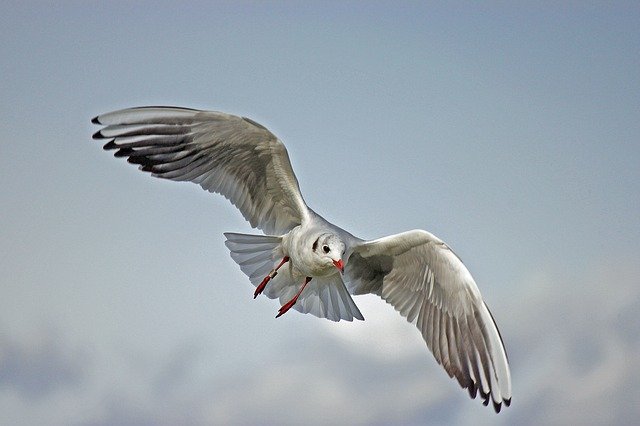
We refer to them as seagulls, but that's an umbrella term for a variety of gull species and not all live by the sea.
There are inland gulls that frequent landlocked waterways instead. Yet they all share the same omnivorous diet, though what makes it up differs.
Fish, Shellfish, and Plankton
A primary source of food for gulls is the water. Whether it's the salty sea that coastal gulls love or freshwater that inland gulls call home. Both bodies of water are teeming with foods for seagulls.
Fish
While seagulls are omnivorous, many members of the gull family are piscivores. This means the bulk of their diet consist of fish.
Seagulls are scavengers, yet, they're apt at both hunting and catching their prey. Because of their size and features, gulls are not well suited to deep diving or hunting large fish.
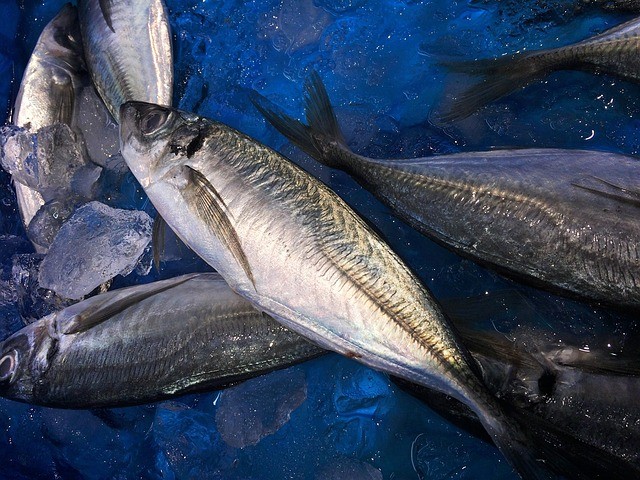
Their prey is smaller fish and the fry (babies) of larger species.
Fish that Seagulls Eat Include:
- Anchovies
- Blennies
- Candlefish
- Herring
- Mackerel
- Sardines
- Sculpin
- Smelt
Seagulls hunting methods vary, though they often skim their prey from shallow waters. And, because they can't dive deep it doesn't mean they don't dive at all.
As warmer waters cause fish to move to lower depths, diving is sometimes the only way for these birds to feed.
Yet, there is no question that gulls are happy to gobble down fish they didn't catch themselves. They haunt docks and fish markets, and follow fishing boats, looking for an easy meal.
They'll even harass pelicans causing them to spill their catch, which the gulls then snatch up.
As scavengers, they have access to meals they could not hope to catch themselves. In fact, it's safe to say they will eat any fish we will.
Seagulls often eat:
- Bass
- Catfish
- Cod
- Salmon
- Shark
- Tilapia
- Trout
- Tuna
- Whiting
Nutrition
From the perspective of a gull's health, a fish heavy diet is a smart one. Fish are full of the protein needed to help and maintain a bird's muscle formation and development.
Oily fish such as sardines and salmon are rich in saturated, mono and polyunsaturated fats. This provides the birds with a healthy energy source and promotes feather health.
Oily fish also contain higher amounts of omega-3 fatty acids. And, helps to control cholesterol levels, improve their immune system and reduce cancer.
Fish contain the following vitamins and minerals, though concentrations vary across species:
- Vitamin A
- Vitamins B-2, B-6, B-12
- Vitamin C
- Vitamin D
- Calcium
- Cobalamin
- Iodine
- Iron
- Magnesium
- Potassium
- Riboflavin
- Zinc
Shellfish & Plankton
As much as seagulls enjoy eating seafood of the scaled and finned variety, those are not the only fish in the sea. Gulls are fond of shellfish, made up of molluscs and crustaceans.
Of which, types include:
- Clams
- Crabs
- Crawfish
- Krill
- Lobster
- Mussels
- Octopus
- Oysters
- Scallops
- Shrimp
- Squid
Seagulls have no problem piercing the thin exoskeletons of crustaceans. It only takes a few strikes of their beak or by devouring them whole, in the case of shrimp and plankton.
Once they've excavated a likely clam or oyster from the sand, they grip it in their beak and carry it high into the air. They locate a hard surface below and drop their armoured prey onto it.
Instead of blunting their beak. Seagulls use gravity to their advantage and feast on the soft flesh once the shell has shattered. Clams are a particular favourite of theirs.
When you see broken shells far from the water, chances are you're looking at the remnants of a seagull's meal.
Nutrition
Shellfish are an excellent source of protein and healthy fats. The nutrient profile is like that of fish. Though, it varies as you would expect from such a diverse group of creatures.
Molluscs such as clams, oysters, mussels and scallops are excellent sources of minerals. As filter feeders, they accumulate high densities of these substances:
- Copper
- Iron
- Magnesium
- Potassium
- Selenium
- Zinc
In fact, oysters yield more zinc per serving than any other species. Gulls that eat them enjoy the mineral's boost to the healing process, though too much zinc can be toxic for birds.
Luckily, it's unlikely that a gull in the wild will suffer from zinc toxicity. Yet, mercury is more prevalent in certain prey species and can affect a bird's health and breeding.
Many consider the decline of the Ivory Gull as down to the mercury in its diet.
Marine Mammals
When you think of things like dolphins, whales, and seals, you probably don't imagine them as prey for seagulls.
While it probably won't surprise you to learn that gulls won't hesitate to scavenge the beached corpses of such creatures, they may also hunt them in a fashion when alive.
Whales
Whales are huge, and even a newborn is many times too large for a gull to tackle.
They also spend a great deal of time at depths beyond a gull's reach, so it's safe to say these leviathans aren't being taken down by birds.
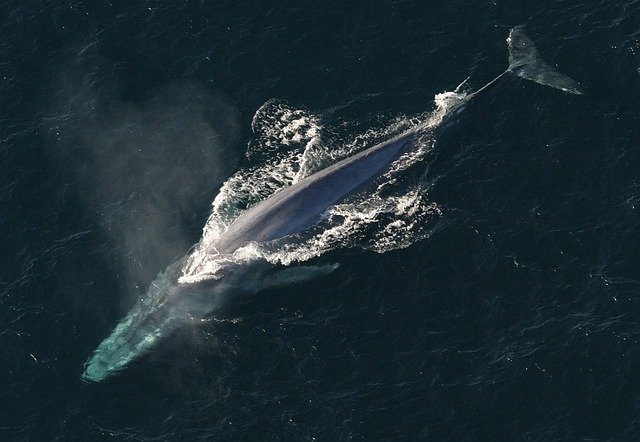
Yet, you can never say gulls won't take every opportunity to find sustenance. With whales they engage in a sort of parasitism, feeding on the creatures while they are alive.
This happens when whales breach the surface to breathe. Nearby gulls will quickly peck away strips of skin and blubber from the whale's body while it is near the surface.
Nutrients
It is gruesome, yet in an ingenious way to get a potent beak-full of protein and energy-rich fat.
Moreover, it contains:
- Vitamin A
- Niacin
- Phosphorus
- Riboflavin
- Thiamin
Seal
Seals make for dangerous prey. They are effective hunters themselves, and gulls that attack them put their lives in jeopardy. At least, that's the case with adult seals.
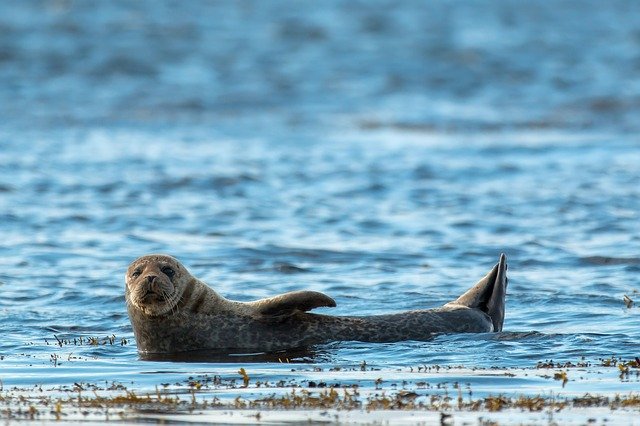
Baby seals are not able to defend themselves against a gull's assault, and kelp gulls have learned to use this to their advantage.
They peck out the eyes of the young seals, essentially dooming them to death. Then, the flock feasts on the truly defenceless animal.
Nutrition
This ruthless predatory behaviour yields a tremendous return in nourishment. Like whales, seals have a layer of fatty blubber beneath their skin, and it grants all the same nutrients.
However, when not restricted to the occasional stolen bite of flesh, seagulls are able to get to the muscle tissue and offal as well.
Marine mammals have a nutrient composition similar to that of fatty fish — high in omega-3 fatty acids, protein, and healthy fats — but, with significantly more iron.
Fruits, Nuts, & Berries
Like all animals, gulls pick their food based primarily on the energy it will provide. When it comes to eating plant matter, they prioritize fatty nuts and sugar-rich fruits and berries.
Leafy greens, on the other hand, are more likely to be picked over and then left behind.
Fruits & Berries
Gulls can be found in all climes, meaning they are likely to be exposed to many different fruits from all over the world.
Yet, they hardly have to rely on their local flora when we humans toss out apple cores, brown bananas, and countless other fruits.

Anything we can eat in this category, gulls can, and will, devour.
This includes:
- Apple
- Banana
- Blackberry
- Blueberry
- Cherry
- Grape
- Orange
- Peach
- Pear
- Pineapple
- Plum
- Strawberry
- Watermelon
Nutrition
These sweet foods are packed with sugar in the form of fructose, which provides instant energy to the gull's metabolism.
They also contain vitamins C and K, both of which are lacking in most meat sources.
Antioxidants, which bolster the immune system and fight inflammation, are also present in these foods, along with fibre that aids in digestion.
Yet, for all their benefits, fruits and berries are sorely lacking in the protein department. They are nourishing, but aren't ideal for proper gull growth and development.
Nuts
Nuts (and legumes) on the other hand, provide ideal fats in the form of oil and are high in protein.
This plant protein lacks some of the necessary amino acids required for a gull to fully metabolise it, but it's still better than no protein at all.
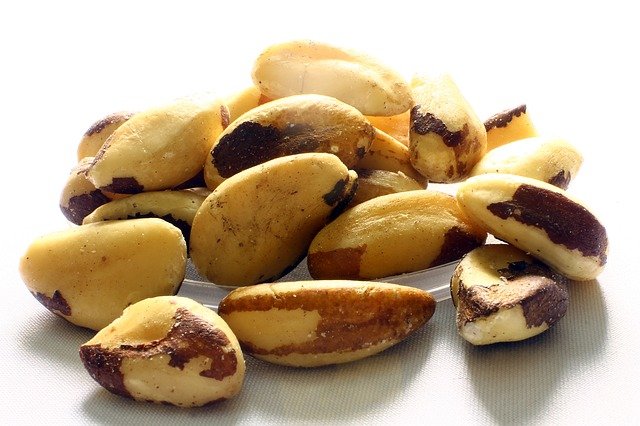
Once again, seagulls can and will eat any nuts we do. In fact, there are some, like Brazil nuts, that they would have a very hard time getting into without us.
They have been observed eating:
- Brazil Nuts
- Cashews
- Pecans
- Peanuts
- Pine Nuts
- Macadamia Nuts
- Walnuts
Once they are made aware of what lurks beneath the shell, gulls will attempt to break into these nuts.
They've even been known to swallow them whole and attempt to wear them down in their crop, particularly with unshelled peanuts.
Gulls, like most birds, will gravitate to salted nuts. This doesn't mean they are ideal, as too much sodium poses a serious health hazard.
If you're feeding this bird nuts, opt for shelled and unsalted varieties.
Nutrition
Nuts are high in protein and healthy fat and contain a variety of vitamins, A, C, and several B vitamins, along with minerals like calcium, potassium, magnesium and manganese.
Processed Human Foods
This covers "people food," everything we make from snack foods and sweets to cooked meals and alcohol.
The seagull's ability, and sometimes preference, to eat as we do is the main source of its "eat anything" reputation.
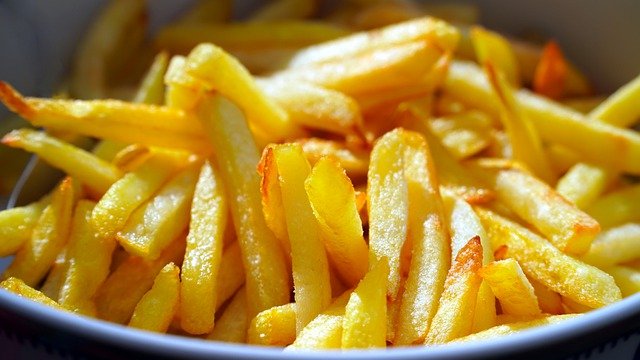
Listing everything applicable in this category would make for a novel, as gulls are amenable to trying anything edible.
However, they have their favourites:
- Chips, or French Fries
- Crisps, or Potato Chips
- Pastries
- Bread
- Crackers
- Popcorn
- Pasta (cooked or raw)
- Beer
- Wine
As you can see, gulls are fond of junk food…
You may not think of bread but it's practically devoid of nutrients beyond carbohydrates and fibre. It is filling, but that's about it. Pasta and crackers are the same.
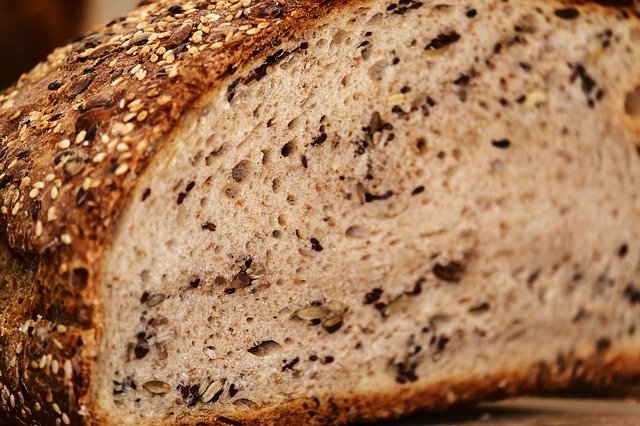
Greasy, salty foods like popcorn, crisps, and chips are gull favourites. Their love of chips is iconic, and people enjoy tossing them a few to see their enthusiastic response.
However, the unhealthy fat and sodium in these foods are ultimately detrimental to the birds. As with humans, just because a bird likes a food doesn't mean it's good for them.
As for the alcoholic beverages, seagulls often drink the dregs in glasses left in outdoor eating areas.
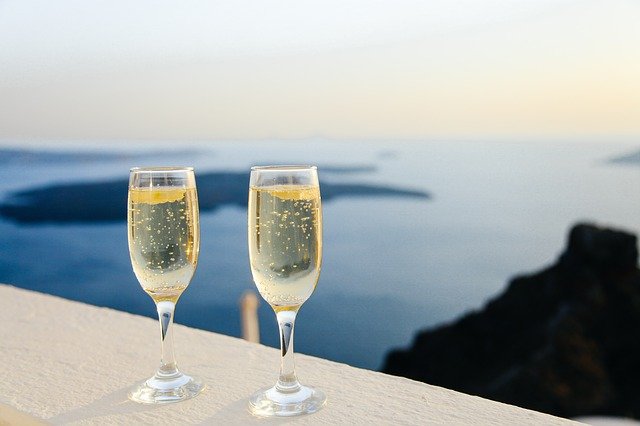
Whether they are drawn to the sweet scent of wine, are assuming the liquid is simply water, or have developed a taste for alcohol has yet to be determined.
What Do Seagull Chicks Eat?
Chicks eat the same things that adult seagulls eat. However, the diet of the parents can change significantly depending on the location of the breeding grounds.
During the breeding season, gulls build their nests in secluded, often remote locations.
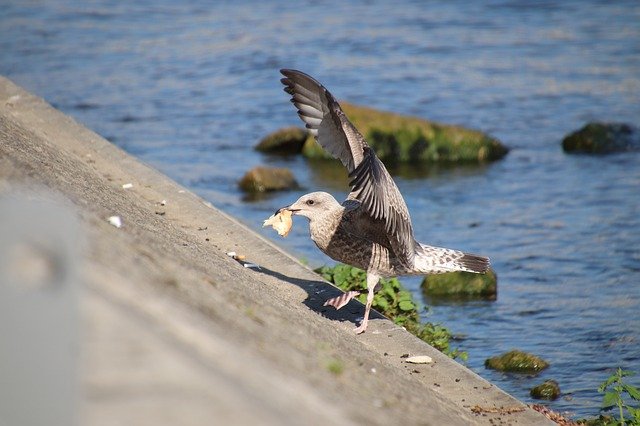
This could mean on the dunes hidden in reeds, high up in the crags of a cliff by the sea, or on an islet in the midst of a lake.
The food they hunt and scavenge in these locations is what they feed to their chicks.
This tends to make for a healthier diet, rich in animal proteins, including such items as fish and shellfish, marine and small land mammals, other chicks and eggs.
However, some gulls have begun to nest in urban areas.
They raise their young on rooftops, and often feed them processed foods, carrion, and even rubbish, depending on what is available.
Conclusion
The truth is, trying to cover the full breadth of a seagull's diet would require many articles like these.
It's not only that these resourceful birds are omnivorous, but that each type of gull develops numerous hunting methods, adapted to whatever food sources exist in their environment.
Gulls are more than capable of taking care of themselves, and they are healthier, and less likely to develop aggressive behaviours towards people, when we allow them to do so.
Think about that the next time you consider tossing them a chip.
F.A.Q.s — Popular Seagull Diet Searches
Do Seagulls Eat Rabbits?
You probably won't be surprised to learn that gulls can eat small mammals like mice and rabbits. Hunting such prey occurs infrequently, and only among the larger gull species.
Big gulls can swallow a young rabbit whole. It's a strange sight to behold but makes for a meal of lean protein, healthy fats, and plenty of vitamins and minerals
Do Seagulls Eat Ducklings?
Yes, some do. They have been seen swooping down to snatch them from the surface of the water, or grabbing them from the nest. This is in line with their opportunistic hunting style.
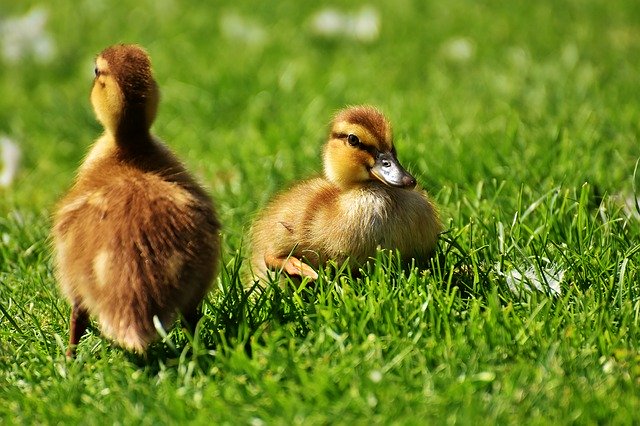
Ducklings represent an easy source of energy and nutrition, particularly fat. They are small enough that even smaller gull species could make a meal of them.
Do Seagulls Eat Birdseed?
Seeds aren't much of a draw for gulls usually, but they will eat them. Mixes can include bits of dried fruit, peanuts, and oilseeds like sunflower seeds that are attractive to these birds.
This is especially true when the seeds are offered in quantities. Suet balls are a favourite of gulls. The animal fat is exactly what they need and they'll eat the seeds along with it.
Can Seagulls Eat Chocolate?
They can, but they shouldn't. Chocolate's mixture of sugar and fat is the main attraction for a gull, but it's the other ingredients that pose the threat.
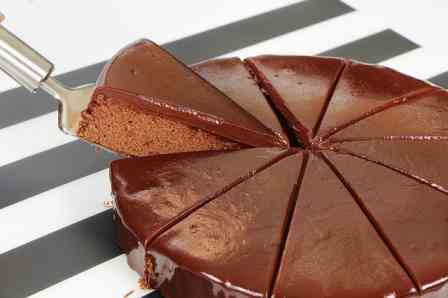
Besides causing vomiting and diarrhoea in general, the high caffeine content of darker chocolate can cause more serious issues, which are exacerbated by the theobromine present in cacao.
Together, these components can dangerously accelerate a gull's heartbeat, drive them to hyperactive behaviour or life-threatening seizures.
Do Seagulls Eat Seaweed?
Yes, but it isn't a mainstay of their diets. When there is nothing else available, gulls have been seen picking at seaweed and kelp to keep themselves satiated.
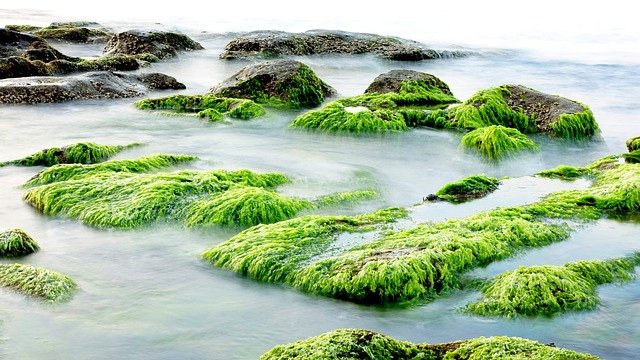
In terms of nutrition, seaweed is an excellent source of many minerals, like calcium, magnesium, iron, and potassium. This nutrient profile varies across species.
However, they lack much in the way of carbs, and have no fat, meaning they are a poor source of energy for gulls.
Source: https://birdfeederexpert.com/seagull-diet-list/
0 Response to "Can I Feed Dried Shrimp to Seagulls"
Post a Comment